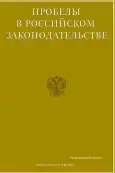Проблемы выявления и пресечения каналов финансирования экстремистской и террористической деятельности
- Авторы: Абазов И.С.1
-
Учреждения:
- Краснодарский университет МВД России
- Выпуск: Том 16, № 4 (2023)
- Страницы: 177-181
- Раздел: Общетеоретические, уголовно–правовые и иные проблемы противодействия экстремизму и терроризму. Проблемы профилактики экстремизма и терроризма
- URL: https://bakhtiniada.ru/2072-3164/article/view/250378
- EDN: https://elibrary.ru/PTQEYG
- ID: 250378
Цитировать
Аннотация
Целью данного исследования является изучение проблемных аспектов при выявлении и пресечении путей финансирования деструктивных организаций. Террористы стараются легализовать получение средств под видом хозяйственных и коммерческих сделок. Для того чтобы выявить подобные операции, необходимо провести серьезный анализ экономической информации. Так, если правоохранители будут знать то, какими путями денежные потоки перемещаются и попадают к террористам, они смогут перекрыть поступление денежных средств террористическим организациям, что также является эффективной мерой противодействия. Для получения необходимых средств достаточно часто используют создание однодневных фирм, которые после совершения сделки прекращают свое существование. Эти фирмы помогают обналичить средства или, наоборот, переводить их в безнал. Важным моментом является то, что такие деньги получены незаконным путем, однако привлечь к ответственности такую компанию уже нельзя по причине ее ликвидации. Установлено, что информационное взаимодействие между разными структурами играет ключевую роль в расследовании не только нелегального финансового оборота, но и преступлений, связанных с финансированием террористических организаций и их деятельностью. Многие преступления замаскированы под легальную деятельность коммерсантов, что значительно усложняет их выявление и расследование.
Сделан вывод о том, что террористы научились фальсифицировать и данные якобы работающих у них в фирме-однодневке сотрудников. В организации могут работать люди, которые на самом деле не имеют к ней никакого отношения. Это так называемые «мертвые души». На расчетные счета этих людей поступают определенные суммы как зарплата, после этого при помощи разнообразных онлайн-сервисов «сотрудники» переводят деньги уже террористам.
Полный текст
Открыть статью на сайте журналаОб авторах
Ислам Султанович Абазов
Краснодарский университет МВД России
Автор, ответственный за переписку.
Email: abazov.70@mail.ru
подполковник полиции, старший преподаватель кафедры деятельности ОВД в особых условиях, Северо-Кавказский институт повышения квалификации (филиал)
Россия, Нальчик, КБРСписок литературы
- Абазов И.С., Воскобоев А.И. Экстремизм и терроризм как продукты глобализации // Евразийский юридический журнал. 2021. № 8 (159). С. 214-216.
- Антонова Е.Ю. Финансирование терроризма: источники и меры по противодействию // Вестник Университета прокуратуры Российской Федерации. 2022. № 1 (87). С. 100-107.
- Ануфриева К.Ю., Еманова С.С. Вопросы противодействия финансирования терроризма в Российской Федерации // Хроноэкономика. 2022. № 3 (37). С. 17-24.
- Добрынинский А.В. Проблемы выявления фактов финансирования терроризма // Форум молодых ученых. 2020. № 11 (51). С. 99-104.
- Долганов С.И. Меры противодействия финансированию экстремизма в сфере банковской деятельности // В сборнике: Международный форум молодых ученых. Сборник статей Международной научно-практической конференции. Москва, 2020. С. 106-109.
- Каймак Е.В. Актуальные вопросы выявления финансирования экстремистской деятельности и терроризма // Евразийский юридический журнал. 2019. № 5 (132). С. 303-308.
- Муратжан З. Сущность, методы, виды, формы и способы финансирования террористической и экстремистской деятельности в современных условиях // Colloquium-Journal. 2020. № 7-7 (59). С. 35-38.
- Сомик К.В., Мохамад-Расул Д.Ф. Анализ способов финансирования терроризма // В сборнике: Эффективное управление как фактор устойчивого развития территории. Материалы межрегионального межвузовского круглого стола. Под научной редакцией А.Т. Алиева. 2018. С. 191-199.
- Тарчоков Б.А. Современный терроризм. Новые угрозы в условиях глобализации // Государственная служба и кадры. 2020. № 3. С. 118-120.
- Ужахов М.К. Правовые основы противодействия финансированию терроризма // Гуманитарные, социально-экономические и общественные науки. 2021. № 12-2. С. 162-164.
Дополнительные файлы








